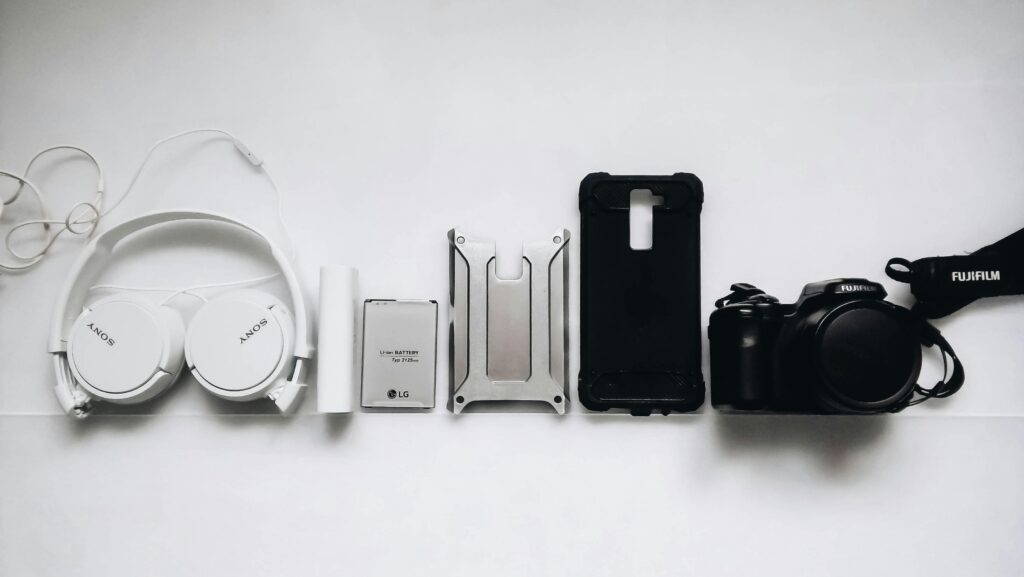Have you ever felt excited about a new gadget only to regret buying it later? From smartwatches to VR headsets, tech companies often promise revolutionary features that make us believe these devices will change our lives. However, many people soon realize that the excitement fades, and the device ends up gathering dust in a drawer. This is why it’s important to ask: are these gadgets truly worth your money, or are they just hype? In this article, we will explore how to separate useful innovations from flashy distractions. You’ll learn which gadgets deliver real value, which ones fail to meet expectations, and how to make smarter buying decisions before spending your hard-earned money.

The Hype Around Gadgets: Why We Fall for It
Marketing campaigns play a huge role in making us believe that every new gadget is “must-have.” Companies often use catchy slogans, celebrity endorsements, and futuristic ads that trigger emotions of excitement and curiosity. For instance, many fitness trackers promise to help you “transform your lifestyle,” even though most people stop using them after a few weeks. The hype works because it appeals to our desire for convenience, efficiency, and social status.
Additionally, tech launches create urgency with limited-time offers and pre-orders, making people feel left out if they don’t buy early. The problem is that once the initial excitement fades, many gadgets don’t add much real value to our daily routines. This doesn’t mean all gadgets are useless, some truly improve our productivity and health, but understanding the psychology behind hype helps us avoid impulsive spending.
Gadgets That Deliver Real Value
Not all gadgets are hype. Some genuinely make life easier, safer, or healthier. For example, smartphones have evolved into essential tools that combine communication, navigation, banking, entertainment, and even work. Similarly, noise-cancelling headphones are highly useful for students, travelers, and professionals, allowing them to focus in noisy environments.
Another good example is smart home devices like voice assistants, security cameras, and smart thermostats. They provide real convenience and even save energy bills in the long run. The key point here is that a gadget’s worth depends on whether it solves a real problem or simply looks cool. If a device improves efficiency, saves time, or enhances safety, then it’s usually worth the investment.
Gadgets That Fail to Live Up to the Hype
On the other hand, some gadgets attract attention at launch but quickly lose relevance. VR headsets, for instance, were marketed as the future of gaming and entertainment, but adoption has been slow due to high costs, bulky designs, and limited content. Another example is 3D TVs, once predicted to revolutionize entertainment but later abandoned because they were uncomfortable and impractical for everyday use.
Similarly, smart rings and niche wearables often promise to track health metrics but lack accuracy or long-term usefulness. Many people buy them out of curiosity but stop wearing them after a month. These cases show that not all new technology is ready for mainstream use, and sometimes, it’s better to wait until the technology matures.
How to Judge if a Gadget Is Worth Your Money
Before buying a gadget, ask yourself a few important questions:
- Does it solve a real problem? – If it only adds luxury without real value, it may not be worth it.
- Is it practical for everyday use? – Some gadgets look great but are uncomfortable or difficult to use.
- Does it have long-term benefits? – Will you still use it after six months, or will it gather dust?
- What do reviews say? – Check genuine customer feedback instead of relying only on ads.
- Is it affordable compared to its value? – Don’t spend thousands on something you’ll barely use.
By following these checks, you can avoid wasting money and focus on buying tech that truly supports your lifestyle.
Case Study: Smartwatches – Useful or Overrated?
Smartwatches are a perfect example of hype meeting reality. At first, they were marketed as futuristic mini-computers on your wrist. People rushed to buy them, expecting them to change their lives. In reality, most smartwatches are extensions of smartphones, offering notifications, fitness tracking, and sometimes health monitoring.
While they are helpful for fitness enthusiasts and those tracking health issues like heart rate or sleep, many users find them unnecessary if they already carry a phone. A case study by Statista showed that 30% of smartwatch owners stopped using their device within the first year because the novelty wore off. This proves that while smartwatches have useful features, they are not essential for everyone.
Balancing Innovation and Practicality
It’s important to understand that innovation is not always equal to practicality. A gadget can be groundbreaking but not always useful in everyday life. For example, foldable smartphones look futuristic, but many users question whether they are durable or worth the high price. On the other hand, portable power banks—simple but practical—have become essential for anyone who travels or uses their phone heavily.
The lesson is clear: the best gadgets balance innovation with usability. They should make life simpler, not more complicated. Consumers who focus on this balance are more likely to make wise buying decisions.
Final Words
From hype to reality, gadgets can either be powerful tools or expensive distractions. The key is to evaluate them based on practicality, long-term use, and actual benefits rather than flashy marketing. Some devices, like smartphones and smart home tools, have become indispensable, while others, like VR headsets or 3D TVs, failed to justify their hype.
Before making your next purchase, ask yourself if the gadget truly adds value to your life. If the answer is yes, it may be worth the investment. But if it’s only about looking trendy or keeping up with friends, think twice. Remember, technology should serve you—not the other way around.
Takeaway: Always do your research, read reviews, and consider your needs before buying. Don’t just follow the hype; follow what adds real value to your life.


